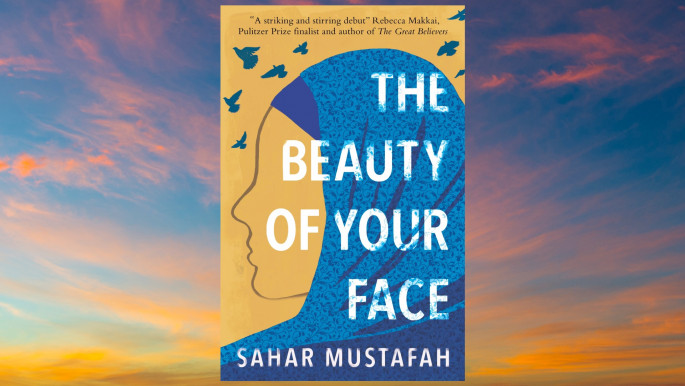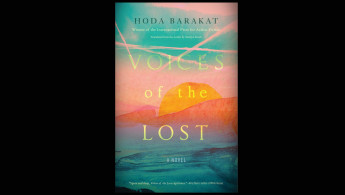Six voices, six letters, lost between countries, languages and lives in Hoda Barakat's new novel
Usually, when you open up a book, which begins with a letter, you presume that the answer is hidden somewhere in the pages. Instead what you get with Voices of The Lost, is a sense of ambiguity and a human chain revealing that we're all much more similar than we recognise. That we see our stories inside one another, even those whose circumstances on the surface seem opposing to ours.
In Hoda Barakat's epistolary novel, each letter is connected yet is not opened by the intended receiver. Beginning with a man who is later defined as "lovesick" and both paranoid of the government following him as well as being achingly confused about his feelings towards his lover, his words "Why wouldn't you leave me?" is the question that rings through all the letters in the book.
The answer to why this specific person is playing on one's heart and mind seems to be the quest all the letter-writers are searching for.
This intense, raw and human novel which does not shy away from showing life's fallibilities, feels both hopeless and hopeful in the other central thread of forgiveness. In one way or another, someone is asking for forgiveness, whether it be of themselves or from another, and sometimes even from the above.
 |
This intense, raw and human novel which does not shy away from showing life's fallibilities, feels both hopeless and hopeful in the other central thread of forgiveness |  |
For example, one letter reveals the complexities of being at the scene of her mother's death — a death she did not cause nor stop — but one that did not stop her prising the rings off her dead mother's hands who was still on her deathbed. 'When does a mother's love leave?' is another question which arises in the book time and time again.
Another letter is from a "girlie boy" addressed to the father who kicked him out, asking to come home. Again, the voice holds two ideas in one hand: accepting the fate of one's past while also deciding to ask for mercy and a new start.
As each letter confesses a dark secret that permits the writer to finally breathe out loud, what's ultimately left is a feeling of reconciliation. Of yearning. "If only you were to come in the door right now," is written by the first voice but one that could have been present for all the letters inside.
Barakat explains through one letter, "Giving a pardon doesn't mean forgetting or erasing what's been done. Granting a pardon just means having some pity for a lost son who never understood how he could have been so battered by storm winds that he came to be what he is."
 |
|
| Read more from TNA's Book Club: The Beauty of Your Face by Sahar Mustafah |
There's also a concern and divine question of what gets to be forgiven in Voices of The Lost. Who is 'too far gone' and who has done enough good deeds to balance out the misdirected acts, be it in this life or the next.
Still what each person discovers from reading the last lost letter, is how everyone simply needs someone to say it will be okay. To be accepted and unconditionally loved after wavering through the storms, no matter what.
"It's about the need we all have for someone to listen to us, and then to decide they will pardon us no matter what it is we have done," writes Barakat.
Yet what differs with this title in comparison to other novels that show the intracises of life's working, is the backdrop of terrorism. It is the elephant in the room that does not make up all the stories but yields enough significance. For example, the country in which these voices have left behind or trying to escape from remain nameless, just like the voices themselves. Arguably, the two crucial parts that make up somebody.
"How well can we know people who have lived through civil wars? How much can we ever really know about the violence and destruction, the losses, the devastation? The overpowering fear they must feel everyday? Can we ever really understand how they are transformed, which things change inside them, and which things harden?"
 |
No matter how old, how lost, how tired, Voices of The Lost is reminiscent of the fact that most of us, amidst the mess, are still searching |  |
In Voices of The Lost, what can be read between the lines is the reveal when you can no longer go back to the place you call home. What happens when a letter is your only hope for a new chapter? Even when you don't have an address to mail it so you wait aimlessly at an airport to hear back from someone, or anyone at least?
The voices, though vaguely Middle Eastern in description, also ask the universal questions. Questions on if that person will still love them if it's been a lifetime in between the last time they saw each other. What's worth risking for a tryst when you're married? What will you do when it comes to surviving and your body is only what will bring bread?
That's all to say, Winner of the International Prize for Arabic Fiction, Hoda Barakat does it again. She isn't tone deaf to the tragedy the Middle East has recently seen nor does she believe it makes up one person's entire story and identity.
No matter how old, how lost, how tired, Voices of The Lost is reminiscent of the fact that most of us, amidst the mess, are still searching. And we'll keep going, until we hear something back.
Tahmina Begum is a freelance journalist and editor.
Follow her on Twitter @tahminaxbegum
The New Arab Book Club: Click on our Special Contents tab to read more book reviews and interviews with authors:


![sudan women [getty] sudan women [getty]](/sites/default/files/styles/image_330x185/public/media/images/5019D7F4-52AF-4377-8A05-885D27476479.jpg?h=d1cb525d&itok=tKXV7r-W)